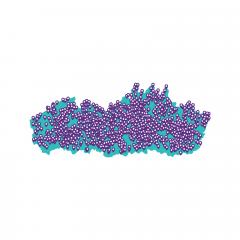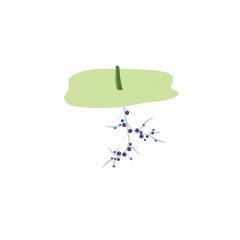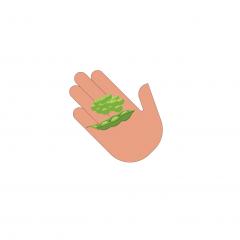Soy in Flanders - Project
In this project, 1000 citizens were engaged to grow soy in their own garden. Endogenous Rhizobium bacteria from soy plants grown in Belgian soil were isolated and data regarding soil type, microorganisms, and soy variety were integrated for the development and implementation of guidelines on optimal cultivation methods for soy in our region. In the long-term, this should facilitate the production of tailor-made seeds inoculated with nitrogen-fixing bacteria that are adapted to local soil conditions and can improve soy yields.

Citizen scientists grow soy in their garden
After an extensive media campaign, 1200 citizens were successfully recruited in Flanders. Selected citizen scientists planted 60 soy seeds in their own garden that were monitored over the course of six months. During this period, citizens reported on plant parameters related to growth and yield on a digital platform that was developed on the project website.

Plants are returned to the lab
Soy was grown locally to trap local nitrogen-fixing bacteria by the citizen scientists. During the summer each participant returned 5 plants that were phenotyped in the lab.

Rhizobia are isolated from the plants
4436 plants were returned to the lab by 907 citizens. 918 plants have root nodules that potentially contain Rhizobia with nitrogen-fixing capacity. These bacteria will be isolated, identified and tested for their capacity to fix nitrogen.

A product for farmers
The isolated nitrogen-fixing bacteria that perform best in the lab and in field trials will be developed into seed coatings that can be used by farmers to grow soy in Flanders with an acceptable yield.

